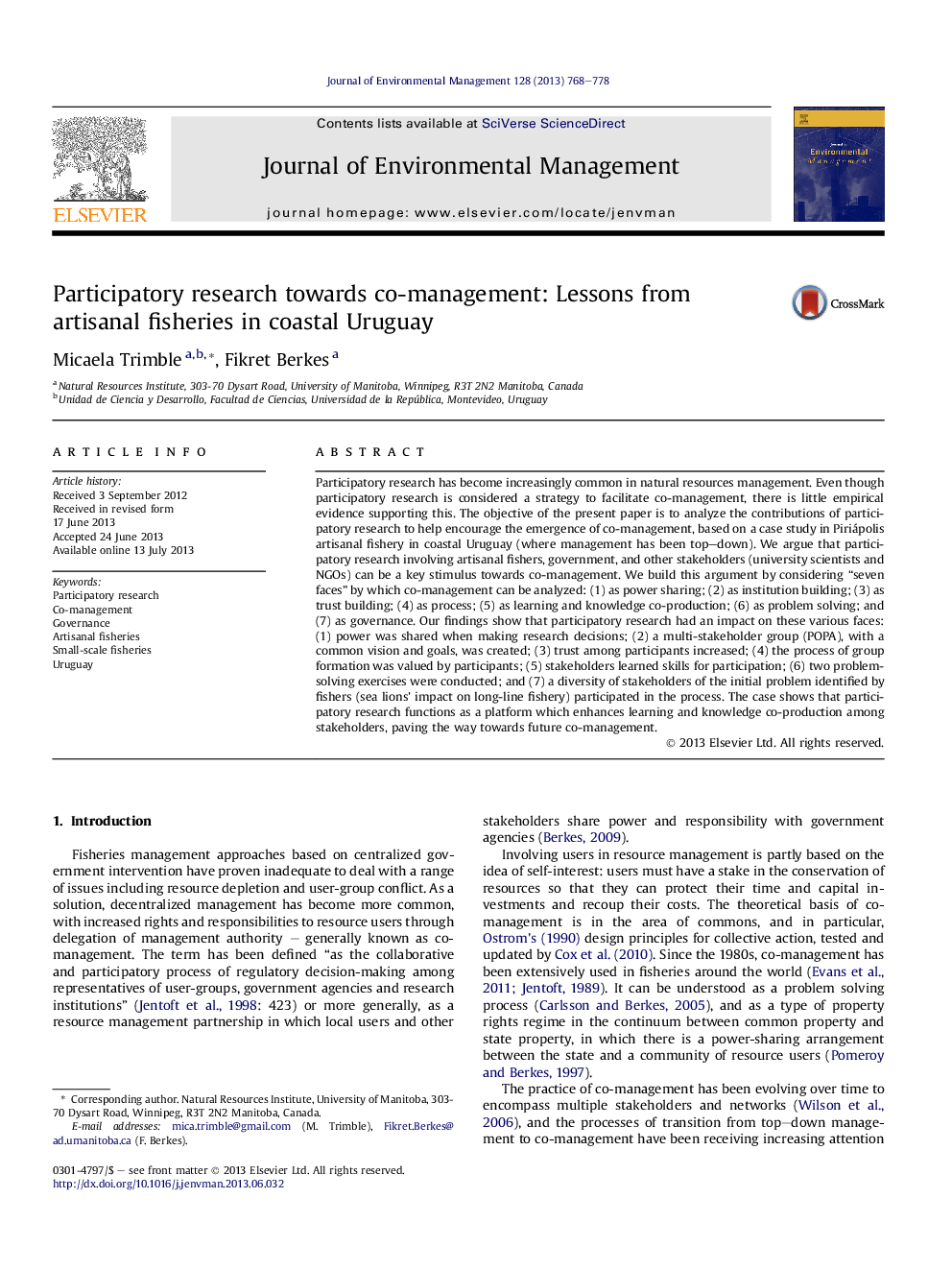| Article ID | Journal | Published Year | Pages | File Type |
|---|---|---|---|---|
| 7484499 | Journal of Environmental Management | 2013 | 11 Pages |
Abstract
Participatory research has become increasingly common in natural resources management. Even though participatory research is considered a strategy to facilitate co-management, there is little empirical evidence supporting this. The objective of the present paper is to analyze the contributions of participatory research to help encourage the emergence of co-management, based on a case study in Piriápolis artisanal fishery in coastal Uruguay (where management has been top-down). We argue that participatory research involving artisanal fishers, government, and other stakeholders (university scientists and NGOs) can be a key stimulus towards co-management. We build this argument by considering “seven faces” by which co-management can be analyzed: (1) as power sharing; (2) as institution building; (3) as trust building; (4) as process; (5) as learning and knowledge co-production; (6) as problem solving; and (7) as governance. Our findings show that participatory research had an impact on these various faces: (1) power was shared when making research decisions; (2) a multi-stakeholder group (POPA), with a common vision and goals, was created; (3) trust among participants increased; (4) the process of group formation was valued by participants; (5) stakeholders learned skills for participation; (6) two problem-solving exercises were conducted; and (7) a diversity of stakeholders of the initial problem identified by fishers (sea lions' impact on long-line fishery) participated in the process. The case shows that participatory research functions as a platform which enhances learning and knowledge co-production among stakeholders, paving the way towards future co-management.
Keywords
Related Topics
Physical Sciences and Engineering
Energy
Renewable Energy, Sustainability and the Environment
Authors
Micaela Trimble, Fikret Berkes,
